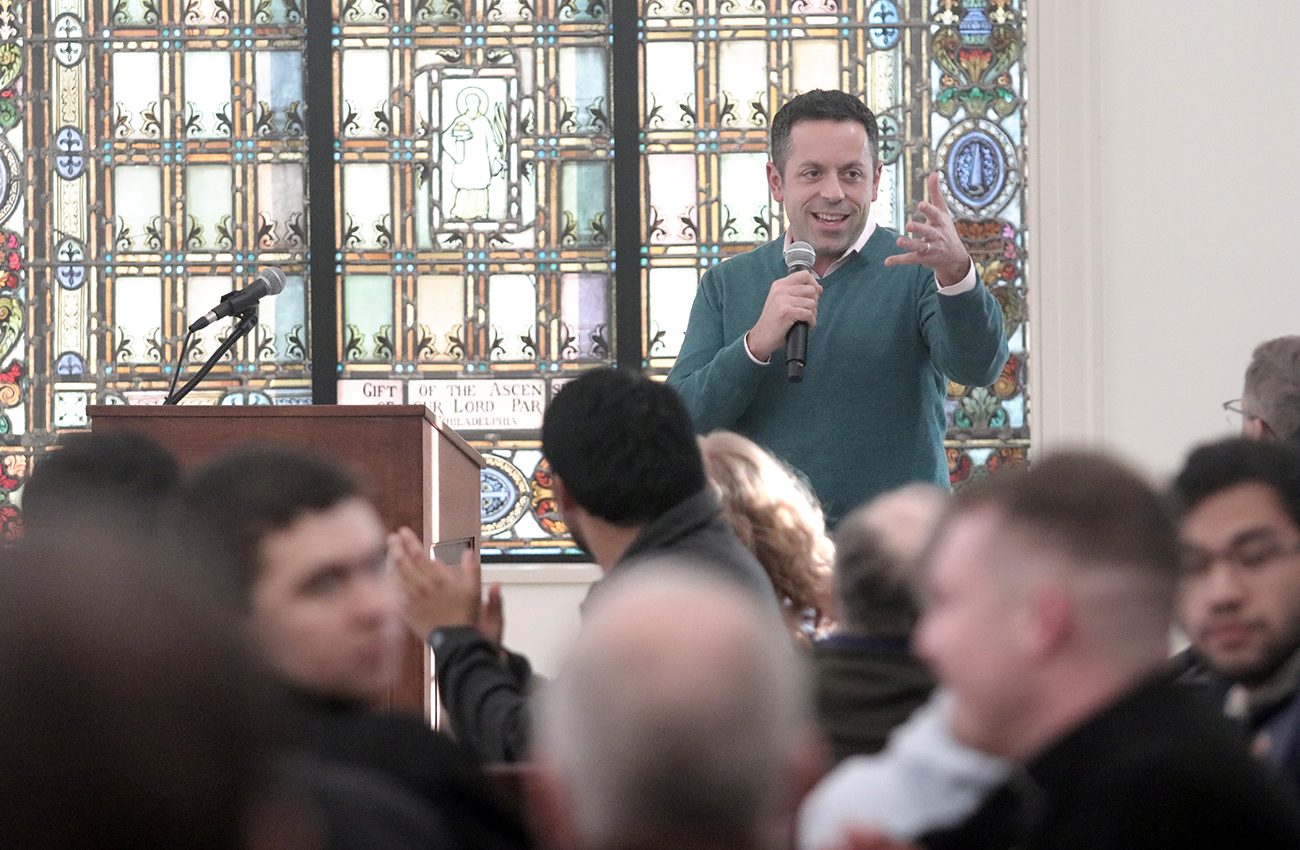Thousands of Catholics across the area are offering forthright, thoughtful, and passionate perspectives to Archbishop Nelson J. Pérez about an innovative framework the Catholic Church of Philadelphia has presented to reimagine and grow the Church over the next two decades.
Information and dialogue sessions about the groundbreaking plan, first described in a pastoral letter the archbishop wrote in January, so far have allowed more than 4,500 area Catholics to give in-person and written feedback to leaders at archdiocesan sessions held across the region since February, not counting those held in individual parishes.
Those leaders are developing the strategy designed to help Catholics evangelize those who have fallen away from the practice of their faith, as well as non-Catholics.
The plan involves creating regional “missionary hubs” with their own dedicated full-time staff who support and work through existing parishes, schools, charitable ministries, and religious communities to engage the local community in an outward facing manner, “a connection point that many crave in today’s world” as the archbishop wrote.
>>>PHOTO FEATURE: Faithful Share Hopes for Church’s Future with Archbishop Pérez at Ambler Listening Session
The long-term effort, collaboratively created by the archbishop, the archdiocesan Strategy Office, and the Catholic Leadership Institute in Malvern, heavily focuses on building encounters with God for the 83 percent of the approximately 1.1 million Catholics in the five-county area who do not regularly attend Mass.
“I think so much of the lack of vitality people may experience in their parishes is a spiritual deficit in never having encountered God,” one attendee shared during a listening session with Archbishop Pérez earlier this month at St. Charles Borromeo Seminary in Ambler.
“It’s through radical hospitality and welcome that people are able to come to a pretty vulnerable place, to be able to facilitate a very authentic encounter with God with great, great depth,” said Sister Michelle Cimaroli, ACI, of St. Raphaela Center in Haverford during a session at Cardinal O’Hara High School in Springfield.
“I can’t tell you how many people come (to the retreat center) who say they were born and raised Catholic, and they’re not Catholic anymore.”
Many who attended the sessions shared their own strongly rooted beliefs on why Catholics have left, beyond the aftermath of past scandals in the Church.
“I’ve heard for probably 20 years how attendance at Mass is low, and I have a lot of priest friends. I say, ‘Well, what the heck are you doing about it?” one man asked at O’Hara in front of about 60 Catholics who participated there. “The last campaign that I remember was about 20 years ago, when all the churches were open on Wednesday nights for confession, so I don’t understand why that’s not done now.”
“I think one of the things that we don’t really talk about, and is essential to our faith, is transubstantiation and the Eucharist,” an educator told the 150 lay people and seminarians who attended the session at the seminary. “I think that we’ve gone so far where some of these kids, their parents are just sending them (to Catholic schools), but they haven’t been properly taught.”
Presenters with the Catholic Leadership Institute shared data addressing those concerns. They also shared results for why those 83 percent are not attending – particularly younger people.
“Younger generations, they’re just like, ‘Why does this matter?’ They don’t have any experience of faith,” said Catholic Leadership Institute CEO Dan Cellucci. “(Others) have left because they had an unfortunate or rude encounter with somebody associated with the Church. The third biggest reason is probably a misunderstanding, due to our poor communication, of what the Church actually teaches on things.”
Cellucci emphasized that responses from focus groups are showing that young people are growing up in what he calls “a fabricated reality.”
“They are having a really hard time,” he said. “If you look at not just Catholic research, if you just look at sociological research, they’re having a really hard time forming friendships. They’re having a really hard time adjusting to life.”
He showed how the missionary hub plan is meant to put missionaries in position, in partnership with existing Catholic resources in local areas, to build those authentic friendships and create those moments of encounter.
“What we’re hoping for is some peer-to-peer relationship,” he said. “The research would say if somebody (comes) back to the faith, they come back because of a positive association with a person who is positively associated with the Church … if they have a friendship with somebody who is coming or who is connected.”
Archbishop Pérez finished the listening session in Ambler by giving the attendees a homework assignment.
“Read the letter, go to the landing page TrustAndHope.org, and read it prayerfully. See what it says to your heart, and where it blooms your heart,” he said.
“Then I’m going to ask you to pick one person in your life, preferably somebody who actually doesn’t come to church. Send them the link, and ask them to read it prayerfully. You never know what the Lord will do in their hearts.”
Listening sessions will continue in person throughout the archdiocese and online through May. Click here to register your attendance at a local or virtual session.
PREVIOUS: Papal Foundation Stays Close to Pope Francis, His Priorities
NEXT: Catholic Charismatic Renewal Hosts Day of Prayer With Holy Spirit May 10



Share this story